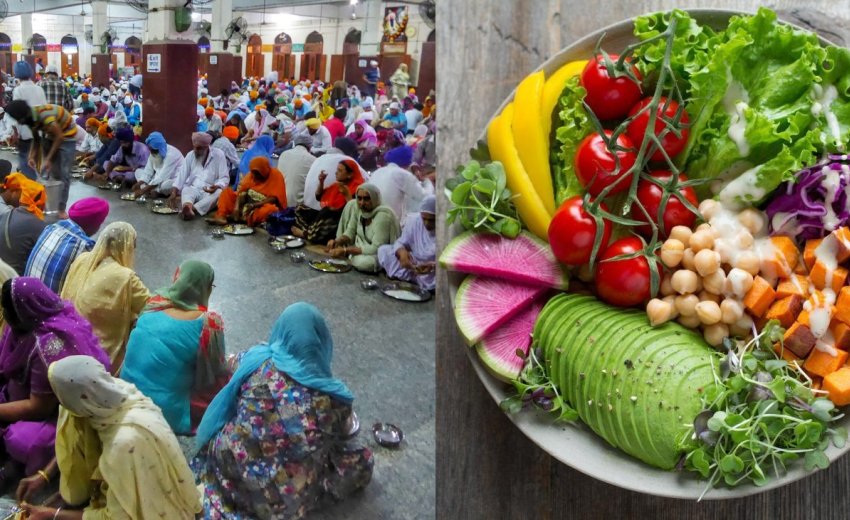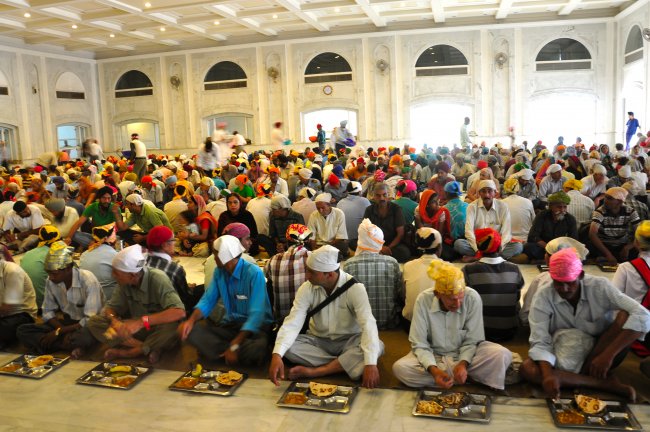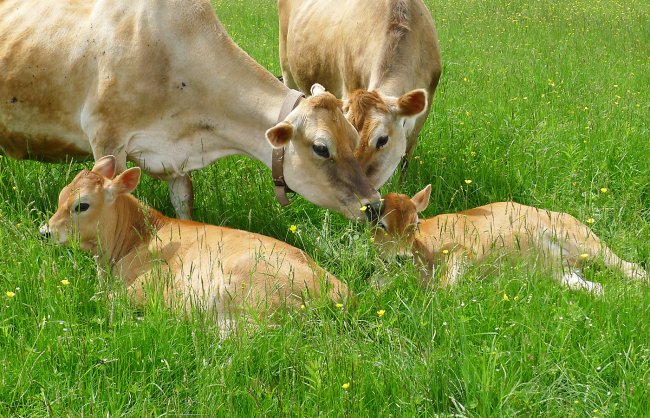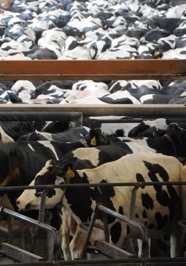Langar, the community kitchen of the gurdwara formalized by Guru Amar Das Ji, is where a free meal is served to all the visitors, without distinction of religion, caste or creed. The meal is typically vegetarian to welcome those of any background to eat there. In the last five years there has been a rapid rise in people practicing veganism, which involves the avoidance of consuming or using animal by-products, typically driven by its impact on animal welfare, as well as environmental and health benefits. The rise in popularity of veganism has been more marked than increasing interest in pure vegetarianism and many expect this trend to continue. I ask if the sangat should do more to include vegans in langar and consider some of the ethical motivations behind the growth of veganism in the context of gurbani.
“He cherishes all his beings and creatures. As the mother cares for her children.”
Ang 105. Sri Guru Granth Sahib
What is veganism?
Veganism is described as a way of living which seeks to exclude, as far as is possible and practicable, all forms of exploitation of, and cruelty to, animals for food (as well as clothing or any other purpose). This involves eating a plant-based diet, which avoids animal foods such as meat (including fish, shellfish and insects), as well as dairy, eggs and honey.
According to the latest 2018 research by the Vegan Society, there are around 600,000 vegans in the UK - up from 150,000 in 2006. The growth in the adoption of vegan diets appears to surpass the growth in pure vegetarianism, which is a trend that is occurring across other developed countries. The rise of veganism has been aided by new vegan food options, dedicated supermarket sections, celebrity and social media endorsement. Many vegans highlight animal welfare, environmental and health benefits as reasons for maintaining a vegan diet.
Does Sikhi promote a vegan diet?
There are different views on whether baptized Sikhs (“Amritdhari Sikhs”) can consume meat. Many Amritdharis are strongly against the consumption of meat. Although some Amritdhari Sikhs believe they can eat meat, there is agreement that it cannot be Kutha (or Kuttha) meat - the meat of an animal or bird slaughtered slowly. Veganism motivated by preventing the exploitation and harm to animals aligns with the reasons why many Amritdhari Sikhs consume a vegetarian diet or at least one that does not include Kutha meat.
We can consider the benefits to animal welfare from veganism by looking specifically at the consumption of dairy products like milk, cheese, ghee and cream, which are regularly used at gurdwaras globally. During the time of the gurus, dairy farming will have been via small family farms with sustainable industry practices. However, modern Western dairy farms utilize vacuum tubes and milk vats to make the processing of milk more efficient and lucrative. An increasing number of farms use artificial insemination to speed up the breeding cycle. The repeated artificial pregnancies utilize reproductive hormones and prescribed antibiotics which place huge pressure on the body and spirit of cows. Moreover, cows’ calves are taken away from them just hours after birth to enable the farms to industrially collect their milk. Male calves are typically seen as byproducts of this process and slaughtered for veal.
“The calf loves to suck its mother’s milk; its heart blossoms forth upon seeing its mother.”
Ang. 164 Sri Guru Granth Sahib
These modern cruel methods of dairy farming are in contradiction to the teachings of gurbani and its appreciation for life. Furthermore, gurbani specifically references the natural close relationship of the cow to its calf as a metaphor for the gurmukh’s relationship with waheguru. Would the gurus be comfortable with our support of an industry that relies on such cruel practices that breaks this religious bond between cow and calf?
Environmental benefits of veganism
Veganism has a clear impact on animal welfare by reducing the demand for animal farming and many of its cruel artificial practices. A reduction in animal farming also creates massive environmental benefits. A recent study by Oxford University suggests that eating a vegan diet could be the “single biggest way” to reduce environmental pollution on earth.
“Air is the Guru, Water is the Father, and Earth is the Great Mother of All.”
Ang. 8 Sri Guru Granth Sahib
Furthermore, this same research suggests that cutting meat and dairy products from a person’s diet could reduce an individual's carbon footprint from food by up to 73%. If everyone switched to this diet global farmland use could be reduced by 75%, an area equivalent to the size of the US, China, Australia and the EU combined. This would free up land, cutting greenhouse gases and enabling the wildlife to flourish.
To continue to be an all-inclusive sangat we need to offer langar that includes those many people transitioning to a strictly vegan diet. Offering a vegan diet will attract more people to our gurdwaras, without detracting from the sangat which relies on vegetarian cuisine. In doing so the Sikh community will also be doing their bit for supporting the well-being of animals and the environment, which is encouraged in gurbani.





